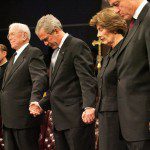
By Timothy Askew; reprinted from Inc. with the kind permission of Timothy Askew.
Belgian painter Erik Pevernagle says, “In a lifeworld, where we can be what we are, and not what people expect us to be, we can escape a blank and void existence, which is linked to wrecking ennui.”
I don’t think I’ve been bored a single day since I embraced entrepreneurship in 1996. Not a day. Not an hour.
What is boredom? Bertram Russell defines boredom as “…essentially a thwarted desire for events, not necessarily pleasant ones, but just occurrences such as will enable the victim of ennui to know one day from another.”
One of the great non-monetary rewards of entrepreneurship is the frisson it brings to each day. There is an elan vital that suffuses every breath of the entrepreneur’s day, a personalization and weight that comes with being radically responsible for your own life and for the life of the corporate entity you animate. What you do, what you decide, really counts.
I was reminded of this reading an article in Business Week five years ago. The article was entitled, “28: Grateful to be Employed, Bored Half to Death” (Mike Dorning, 6/20-6/26, 2011). It talked about the great sense of “stuckness” endemic in the millenial corporate workforce.
“From the factory floor to the boardroom, few Americans these days are willing to tell the boss shove it. Many of those who have weathered the recession with their jobs intact are now sheltering in place, either fearful of risking a change or simply lacking the opportunity. Since January 2009, an average 1 million fewer Americans per month have quit their jobs than in previous years. … That adds up to 28 million Americans stuck in jobs they would have left in ordinary times.”
I think the stagnancy and tightness of the job market since 2008 could have long-term consequences for the vocational health, esprit de corps, and creativity of traditional corporate employees, where the primary goal becomes to survive at all costs and hold tight onto what is at least a stable status quo rather than step into uncertainty, even if that uncertainty offers a potential improvement in pay or career advancement or spiritual existence. It creates timidity and boredom.
Stan Greenberg, a former pollster for Bill Clinton, notes people’s hesitancy to make any moves in the current economy, whether into a new life in a new place, or even to escape from a tyrannical boss. He says, “You’ve got 28 million people whose aspirations are being contained.”
A great, if unquantifiable, benefit of entrepreneurship is the gift of freedom. Freedom to be yourself, freedom to tell the truth, freedom to grow, freedom to laugh, freedom not to be cowed or compromised, freedom to march to the beat of your own drummer. And freedom to not be bored. The price of admission to this entrepreneurial adventure is courage and risk. Even if the entrepreneur fails, the growth of innate stature, earned gravitas, personal dignity, and moral centeredness remains. It is well worth it, whether a business succeeds or fails. And one is guaranteed never, ever to be bored.
The late Susan Sontag says, “The life of the creative man is led, directed, and controlled by boredom. Avoiding boredom is one of our most important purposes.”
Thank you, Susan.
Image: Pixabay.
 Tim Askew is the owner of sales firm Corporate Rain International and a member of the Inc. Business Owners Council. He has several advanced degrees, and has been a tennis pro, actor, opera singer, Broadway producer, dishwasher, bartender, minister, and college assistant dean. Askew is the author of the new book The Poetry of Small Business (available on Amazon). @TimothyAskew
Tim Askew is the owner of sales firm Corporate Rain International and a member of the Inc. Business Owners Council. He has several advanced degrees, and has been a tennis pro, actor, opera singer, Broadway producer, dishwasher, bartender, minister, and college assistant dean. Askew is the author of the new book The Poetry of Small Business (available on Amazon). @TimothyAskew













